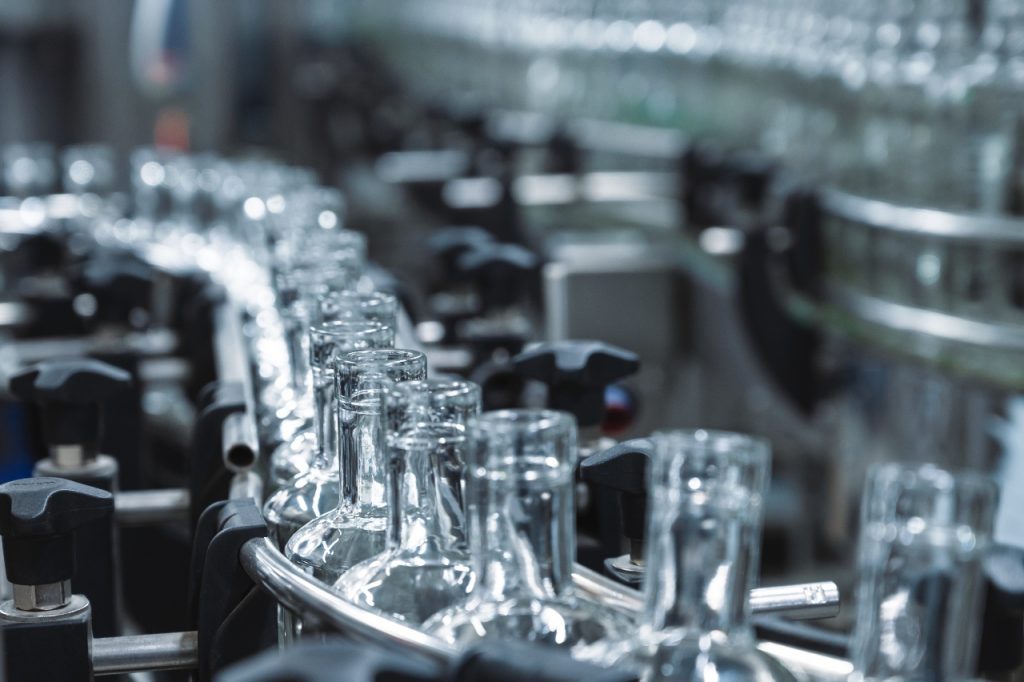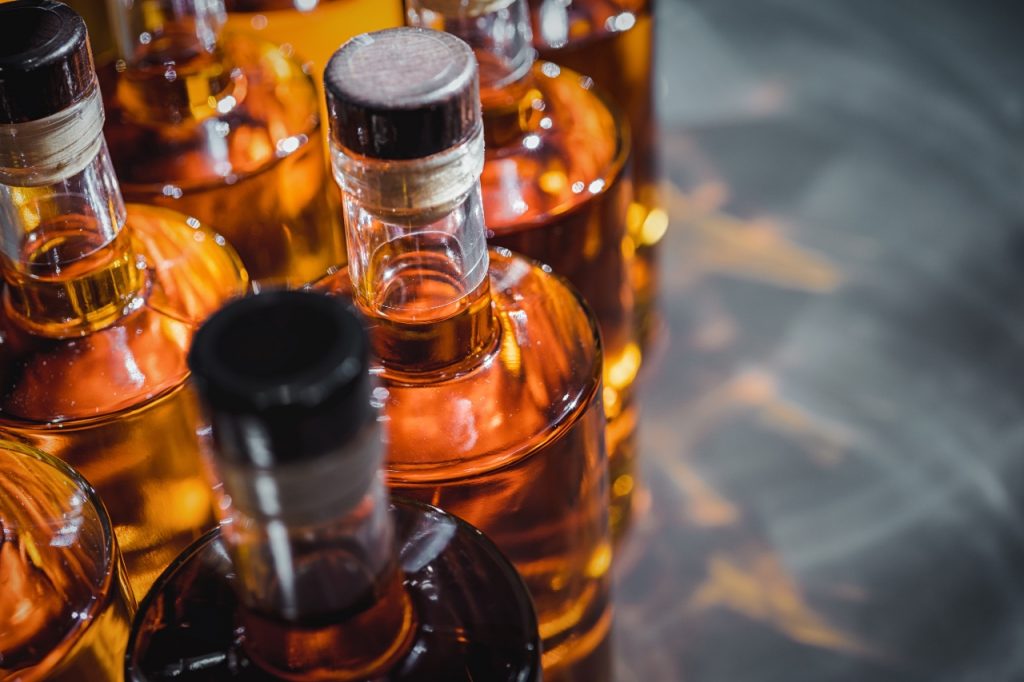High-speed, automated profile inspection saves millions of bottles from the bin

- Automated, in-line inspection solution set up in 48 hours
- Accurately measuring tolerances at 5 bottles per second
- 4,000 pallet-loads inspected in under 10 weeks
- 2,500 pallet-loads saved from unnecessary destruction
- Potential for permanent, company-wide rollout
Overcoming the costs of manual inspection
The challenge
By its very nature, whisky is a premium product; one which demands a high-end, high-performance bottle that can be safely stored for years, often decades.
After discovering a potential quality issue with one batch of its whisky bottles, one manufacturer identified 4,000 pallets of stock – over 3 million bottles – which required reworking in under 10 weeks.
While weighing up the costs of manual inspection – in time, labour, storage and customer delays – against destroying the whole batch, the company asked Bytronic Vision Automation to come up with an automated solution to its urgent rework challenge.

Automated in-line inspection and sortation at five bottles per second
The solution
The issue was the shape of the bottle in the ‘neck’ area. During the filling process, whisky makers apply a cap and sleeve to each bottle at the end of the filling line, where a machine called a capping head ‘rolls’ the finish around the bottle. This securely seals the liquid inside and is what allows an unopened bottle to be safely picked up by its cap.
Each bottle neck must be shaped to exactly match the angle at which the cap and sleeve are applied, or they can’t grip. This can lead to so-called ‘pull offs’ where the cap separates from the bottle later on.
The customer identified one batch in which the shape of the neck may have been incorrectly made, leading to significant pull offs. But it was unclear how many bottles were affected.
The engineers at Bytronic were quickly on site at the plant in Alloa – where three furnaces and 10 production lines produce more than three million products each day.
Using a pre-existing on-site rework line to prevent downtime, they swapped the manual option – a time-consuming shadowgraph check – with an automated in-line inspection system that was up and running within 48 hours.
Their solution inspected the dimensions of the neck of each bottle, with the region of interest being an area 40mm in diameter. These measurements were then automatically checked against a pre-programmed set of tolerances for the acceptable shape of the neck. Bottles were then sorted into ‘good’ or ‘bad’ depending on the result.
Failure rate is now almost one in a million
The result
Thanks to the Bytronic technology, the automated line could check 5 bottles every second, and the whole 4,000 pallets were inspected within 10 weeks
3 million bottles were checked and sorted into ‘good’ or ‘bad’, and roughly 60 per cent were saved from the bin. That’s nearly 2 million premium bottles that would have otherwise been smashed up, reformed and recycled needlessly, costing money, time and emissions.
On-site quality product manager: “The kit has done everything we needed it to, and more – and accurately too. Trials can often be tricky, but I was really pleasantly surprised by the accuracy and repeatability of the equipment.
“The Bytronic team were great – any time we had questions, we could ask them remotely and they would log on to see what was happening in a matter of minutes. We never had any issues, and they never let bad glass get onto a pallet.”

